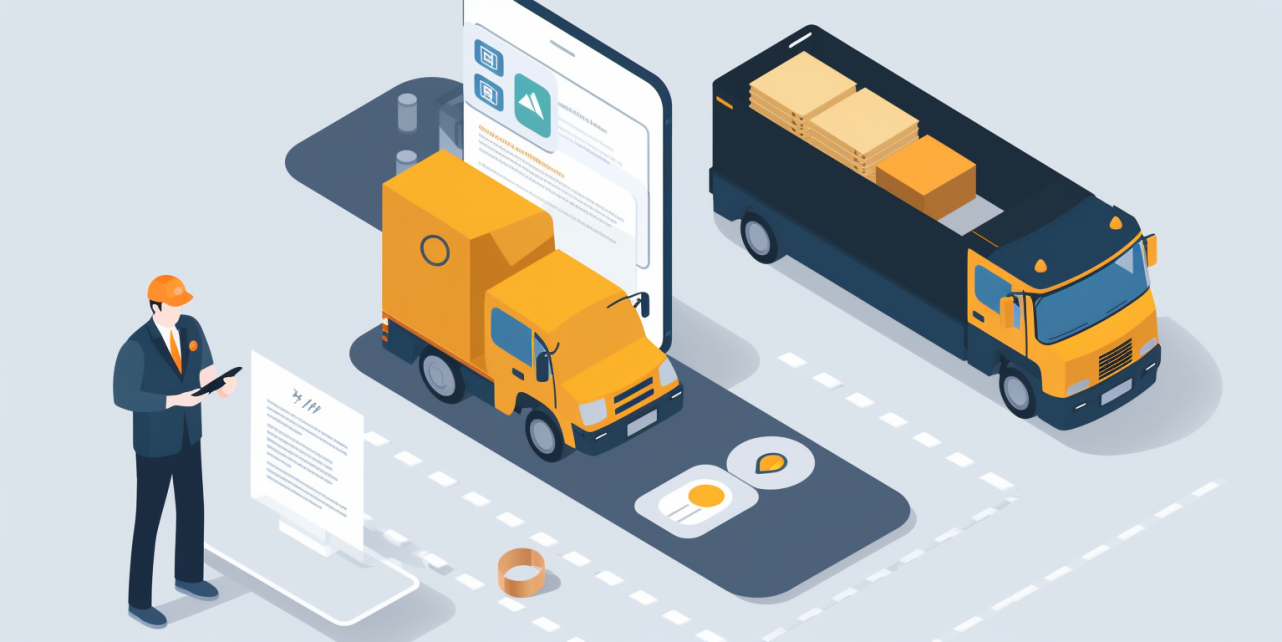The benefits of mobile field service management software are clear: better operational efficiency, cost savings, and improved customer service.
Increased Operational Efficiency: A mobile field service management system enhances operational efficiency by automating field service processes and providing real-time data access for better communication between workers and management. This saves time and reduces labor costs.
Cost Savings: A mobile field service management system eliminates the need for large teams of on-site management personnel. It also reduces the need for physical inventory, which cuts down on associated storage costs.
Improved Customer Service: By providing real-time data access, a mobile field service management system provides quicker response time to customer needs. It also reduces the need for paperwork, which eliminates human error and helps decrease turnaround time.
Overall, a mobile field service management system helps to ensure that all processes are efficiently managed. It provides visibility into operations, streamlines processes, and reduces labor costs. Most importantly, it ensures that customers receive exceptional service.
How a Mobile Field Service Management Software Can Reduce Labor Costs
A mobile field service management system can significantly reduce labor costs by automating processes, providing real-time data access, eliminating the need for large teams of on-site management personnel, and reducing the need for physical inventory. This helps to streamline processes, ensure efficient management of operations, and provide customers with quicker response time. All of these factors significantly cut down on labor costs, allowing businesses to operate more effectively and cost-efficiently.
Improving Inter-Team Communication
Inter-team communication can be improved with a smartphone app. This app can enable teams to create group chats, send messages, and make calls to get up-to-date information and to stay on top of tasks. By providing a real-time view of all conversations, the app also allows teams to monitor progress, identify problems, and ensure that everyone is on the same page. Furthermore, the app can be integrated with existing systems, such as calendar apps or email, to create a seamless workflow. By utilizing a mobile app, teams can better collaborate and keep communication efficient.
How Mobile Field Service Management Software Can Make Processes Easier to Manage
Mobile field service management software can make processes easier to manage by automating routine tasks, providing real-time data access, and eliminating the need for large management teams. This can help to streamline processes, ensure efficient and effective management of operations, and enhance visibility into operations. Mobile field service management software can also increase customer satisfaction by providing quicker response time to customer needs. With efficient processes and improved customer service, businesses can function more smoothly and cost-effectively.
Real-Time Data Accessibility
Mobile field service management software provides real-time data access, allowing teams to stay on top of tasks and quickly address customer needs. This enhances operational efficiency by reducing turnaround time, eliminating human errors, and streamlining processes. This real-time data access can be accessed from any device with an internet connection, allowing workers to work from anywhere at any time. This enables the entire organization to have full visibility into operations, enabling efficient management of all processes and improved customer service.
Streamlining Scheduling
Mobile field service management software can streamline scheduling by allowing technicians to access job requests in real time from any device with an internet connection. With this tool, teams can view schedules and assign tasks quickly and efficiently, eliminating the need for manual scheduling. Furthermore, teams can stay on top of tasks by setting up automated reminders, letting them easily keep track of appointments and never miss an important task. This improves operational efficiency, reduces labor costs, and enhances customer service.
Understanding Report-Generation Capabilities of Mobile Field Service Management Software
Mobile field service management software enables teams to generate comprehensive reports of field service operations. These reports provide detailed data and insights into the performance of workers and track customer interactions. Additionally, they can identify areas of improvement and potential cost savings. This real-time data access allows organizations to quickly respond to customer needs, identify issues, and prioritize tasks. Furthermore, it helps managers to optimize the utilization of resources and better manage scheduling. By taking advantage of these report-generation capabilities, businesses are able to optimize their workflow, enhance customer service, and cut down costs.
Effectively Managing Service Issues
Effectively managing service issues requires proactive communication, effective teamwork, and quick problem resolution. As a first step, teams should develop a strategy to address customer needs, identifying potential issues and outlining steps for resolving them. Teams should also have open and frequent communication with customers, informing them of service offerings and responsive times. And, they should establish an efficient workflow to ensure that service requests are quickly identified and addressed. Furthermore, teams should use a mobile field service management system to track all service activities and generate reports that provide real-time insights into operations. By implementing these strategies, teams can ensure that customer service issues are addressed quickly and effectively.
Automating Processes to Minimize Errors and Increase Efficiency
Automating processes with a mobile field service management system is essential for minimizing errors and increasing efficiency. Automating manual tasks such as scheduling, invoicing, and service requests can improve operational efficiency by reducing labor costs and eliminating human errors. Real-time data access allows teams to quickly view and address customer needs, enhancing customer service and providing visibility into operations. Additionally, this system can be integrated with existing systems such as calendar apps and email, allowing for a streamlined workflow. With efficient processes, teams can ensure that operations are handled accurately and quickly, thus minimizing errors and increasing efficiency.
Cost Savings of Implementing a Mobile Field Service Management Software
Implementing a mobile field service management software can lead to significant cost savings. The software automates tasks such as scheduling and invoicing, eliminating the need for large teams of on-site personnel. It also reduces the need for physical inventory, reducing associated storage costs. Furthermore, as the system provides real-time data access, teams can quickly view and address customer needs, eliminating the need for paperwork and decreasing turnaround time. By taking advantage of these cost savings, businesses can operate more effectively and cost-efficiently.
How Mobile Field Service Management Software Helps Ensure Exceptional Service to Customers
A mobile field service management system helps ensure exceptional service to customers by automating routine tasks, providing real-time data access, reducing the need for large teams of on-site personnel, and reducing the need for paperwork. This enhances operational efficiency by streamlining processes, ensuring efficient management of operations, and reducing labor costs. It also provides visibility into operations and ensures that customers receive quicker response time. As a result, businesses can provide exceptional service to customers while operating more cost-effectively.
Key Takeaways
A mobile field service management system can significantly improve operational efficiency, reduce labor costs, and improve customer service. It automates processes, eliminates the need for large management teams, and provides real-time data access. This increases visibility into operations, enables efficient management of tasks, and allows workers to work from anywhere. Additionally, it can be integrated with existing systems, such as calendar apps and email, to create a seamless workflow. By utilizing a mobile field service management system, businesses can ensure that operations are efficiently managed, customer service is enhanced, and labor costs are reduced.



